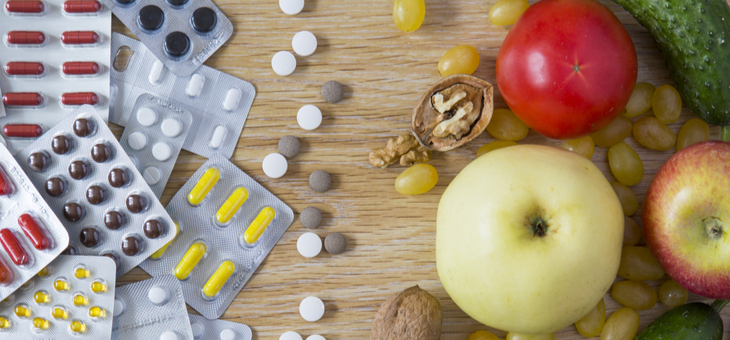Food can affect how much medication gets absorbed into the body and how fast it is metabolised. These interactions can render a prescription ineffective, or increase the risk of experiencing dangerous side effects.
Here are some of the most dangerous combinations.
Grapefruit and grapefruit juice
Full of Vitamin C, fibre and potassium, there are many health benefits to grapefruits, but it can also interfere with as many as 85 different prescription medications. Grapefruit juice has an impact on important intestinal enzymes and can mean that more of the medicine will enter your blood stream. This can increase the risk of side effects if you are taking medication for heart conditions, high blood pressure, high cholesterol, infections, epilepsy, depression, anxiety and sleep problems. The exact side effects from interactions vary and depend on the medicine, but some are serious.
Some of the serious side effects that have occurred when certain medicines are taken with grapefruit include:
- complete heart block (resulting in a very slow heartbeat)
- torsade de pointes (rapid heartbeats that can lead to sudden death)
- rhabdomyolysis (severe damage to skeletal muscle that can lead to kidney damage)
- nephrotoxicity (kidney damage)
- myelotoxicity (damage to bone marrow)
- respiratory depression (reduced or slowed breathing).
Bananas
If you are taking ACE-inhibitors for hypertension or heart problems, then you need to beware of potassium-rich foods, especially bananas. Blood-pressure medications elevate the levels of potassium in the body, and if you add further potassium into the mix you can suffer dangerous heart palpitations.
Kale, broccoli and spinach
If you are taking blood-thinning medication, such as warfarin, leafy green vegetables will work counter to your medication. These foods contain Vitamin K, which promotes blood clotting and will somewhat nullify the effect of medication that works as an anti-coagulant. You don’t have to cut leafy greens out of your diet completely, but you should be careful about overdoing it.
Alcohol
Alcohol interacts with many medicines, including some prescription, pharmacy and complementary medicines. The effects of combining alcohol and medicine depend on the type and dose of the medicine, the amount of alcohol consumed, and also on personal factors, such as genetics, gender and other health conditions. In general, women and older people are more likely to experience such interactions because they are more susceptible to the effects of alcohol. Alcohol can increase the effects of medicines that relax or sedate the body, such as sleeping tablets, anti-anxiety medicines and antidepressant medicines. Some common painkillers can interact with alcohol to cause stomach upsets, stomach bleeding and ulcers.
Coffee
If you are on antipsychotic medication, coffee can increase the chances of side effects. Also, if you suffer from asthma, consuming a lot of caffeine can reduce the effectiveness of your medication in an emergency.
Have you ever had a bad reaction between food and medicine? What was it and what happened?
If you enjoy our content, don’t keep it to yourself. Share our free eNews with your friends and encourage them to sign up.
Related articles:
When healthy habits go wrong
Best and worst foods from the deli
Brussels Sprouts and Lentil Salad

